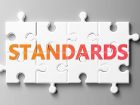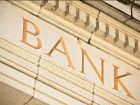
Special Delivery
The XBRL Standards Board has approved an initial Public Working Draft of the Report Packages specification, along with an update to the requirements document.

The XBRL Standards Board has approved an initial Public Working Draft of the Report Packages specification, along with an update to the requirements document.

The past year has seen growing consensus on the need for non-financial reporting standards in order to mitigate climate-related financial risks and help investors divert capital towards more sustainable ends. However, sustainability reporting is a complicated task, and a number of difficult questions need to be answered before effective standards can be established.

In other sustainability standards news, the US Securities and Exchange Commission’s (SEC’s) Asset Management Advisory Committee recently published its recommendations on Environmental, Social and Governance (ESG) disclosure.

Regular readers of this newsletter may remember that recently the European Commission (EC) tasked EFRAG with exploring possible EU non-financial reporting standards that could form part of a revised Non-Financial Reporting Directive (NFRD).

Sustainability Accounting Standards Board (SASB) CEO, Janine Guillot, believes that the IFRS Foundation’s Consultation Paper on Sustainability Reporting is the most significant development in accounting standard-setting since the creation the IASB in 2001. And, with the stakes this high, she argues that it’s crucial to get it right.

Following similar moves from the IASB, the Financial Accounting Standards Board has issued an update designed to help alleviate the burden on companies affected by Covid-19.

Banks’ ability to carry out climate change related stress tests could be vastly improved by standardisation of corporate ESG risk disclosures, according to a new report published by Fitch Ratings.

This is a guest post by Mohini Singh, ACA, Director Financial Reporting Policy at CFA Institute. Originally published here. Currently, many jurisdictions around the world require public companies to produce financial reports using XBRL. The myth that blockchain could replace XBRL in the production of financial information is incorrect. Blockchain is not a data standard. […]

Following the recent announcement that the Sustainability Accounting Standards Board (SASB) is working with PwC to develop an XBRL taxonomy, Wes Bricker, vice chair of PwC US and Mexico and Vice Chair of XBRL International’s Board of Directors, recently spoke about XBRL, standards and sustainability at a PwC event.

Open standards for digital data exchange are key for keeping e-invoicing and e-procurement safe and sustainable, says Annemieke Toersen, senior IT standards advisor at the Netherland’s Standardisation Forum.